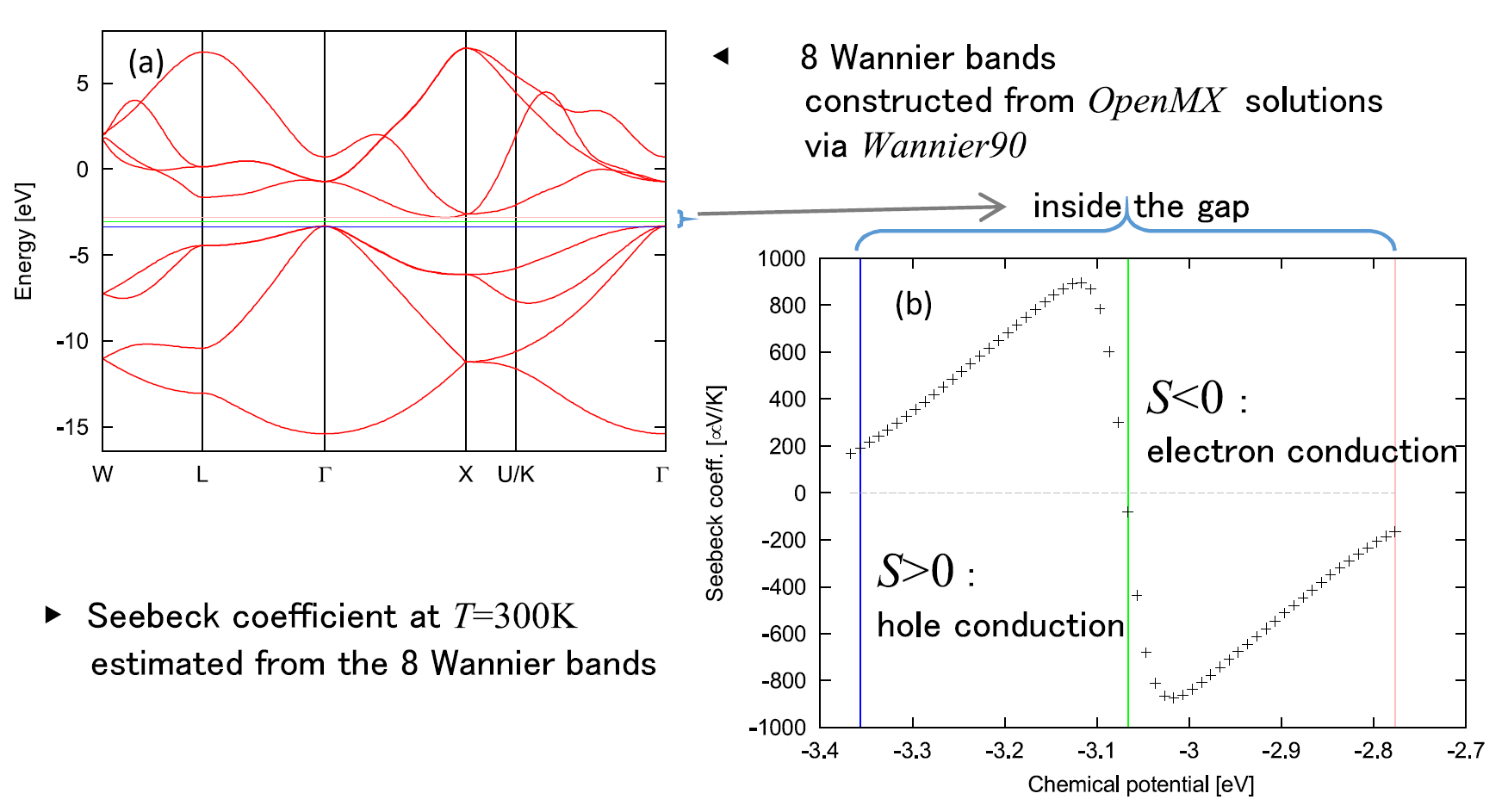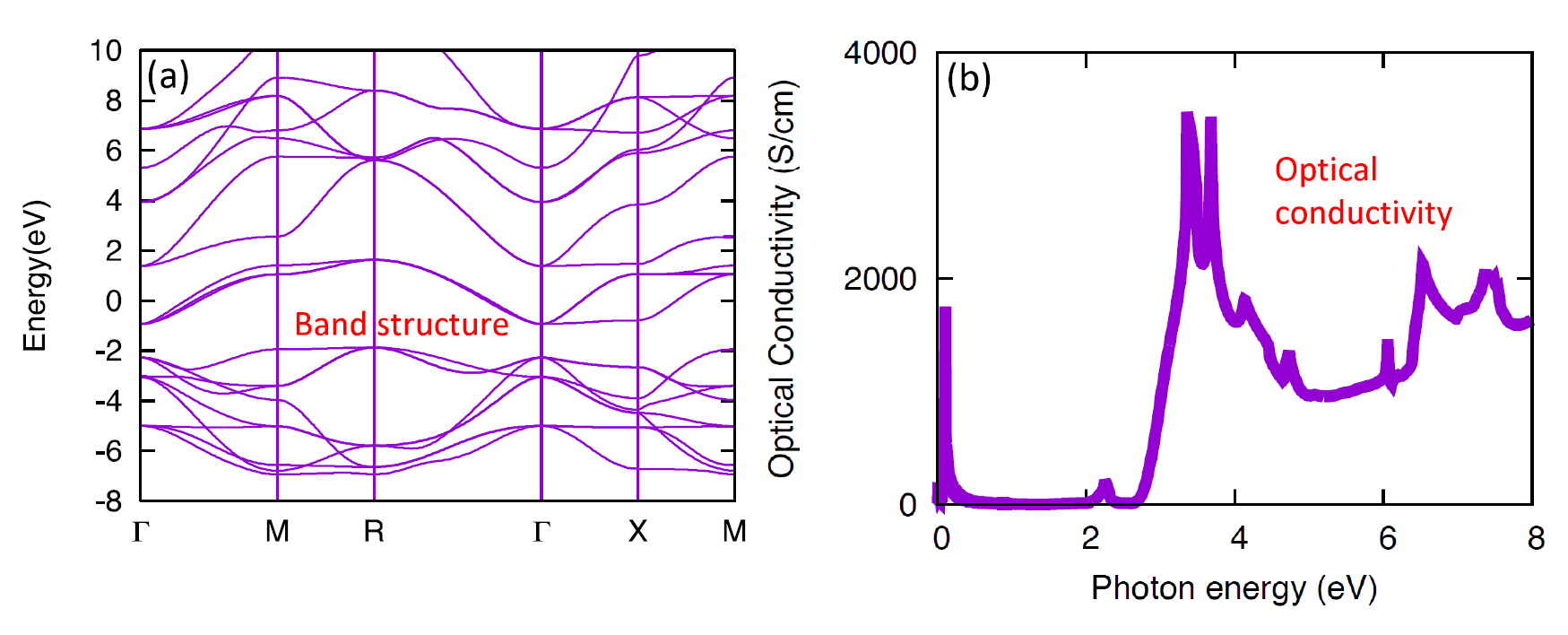Next: Numerically exact low-order scaling Up: User's manual of OpenMX Previous: Automatic running test of Contents Index
OpenMX interfaces with Wannier90 [99] which constructs maximally localized Wannier functions, and calculates physical properties such as Wannier projected DOS and bandstructure, Fermi surface, Berry phase related properties (anomalous Hall conductivity and optical conductivity), and thermoelectric properties. For the calculations, you need to set two keywords as follows:
Wannier.Func.Calc on # on|off, default=off Wannier90.fileout on # on|off, default=off
Once you run a job by an input file with the parameter settings shown above, you will see that the job will finish with the following message:
The input files for Wannier90, System.Name.amn System.Name.mmn System.Name.eig System.Name.win are successfully generated.After finishing the calculation, you will obtain the four files listed above. The first three files will be read by 'wannier90.x' of Wannier90, and the last file 'System.Name.win' is an input file to handle the calculation of 'wannier90.x'. The schematic computational flow is shown in Fig. 40. With the overlap matrix 'System.Name.mmn', the projection matrix 'System.Name.amn', and eigenvalues 'System.Name.eig', maximally localized Wannier functions are calculated by using 'wannier90.x'. After getting the maximally localized Wannier functions, by using 'postw90.x' of Wannier90 you can calculate a variety of physical properties such as Berry phase related properties (anomalous Hall conductivity and optical conductivity) and thermoelectric properties. In the file 'System.Name.win' the default setting is for the calculation of optical conductivity as
berry_task kuboBy changing the option for the keyword 'berry_task' properly, you may be able to calculate other physical quantities. Some of the options for the keyword are listed below:
berry_task kubo # optical conductivity berry_task ahc # anomalous Hall conductivityAs for the more details of Wannier90, please refer to the web site of Wannier90 [99].
As examples, Figures 41 and 42 show
Seebeck coefficient of silicon in the diamond structure and optical conductivity of SrVO![]() , respectively,
calculated by interfacing OpenMX with Wannier90 with the above mentioned scheme.
The input files 'Si-Wannier90.dat' and 'SrVO3-Wannier90.dat' can be found in the directory 'work'.
, respectively,
calculated by interfacing OpenMX with Wannier90 with the above mentioned scheme.
The input files 'Si-Wannier90.dat' and 'SrVO3-Wannier90.dat' can be found in the directory 'work'.
 |
 |
2016-04-03